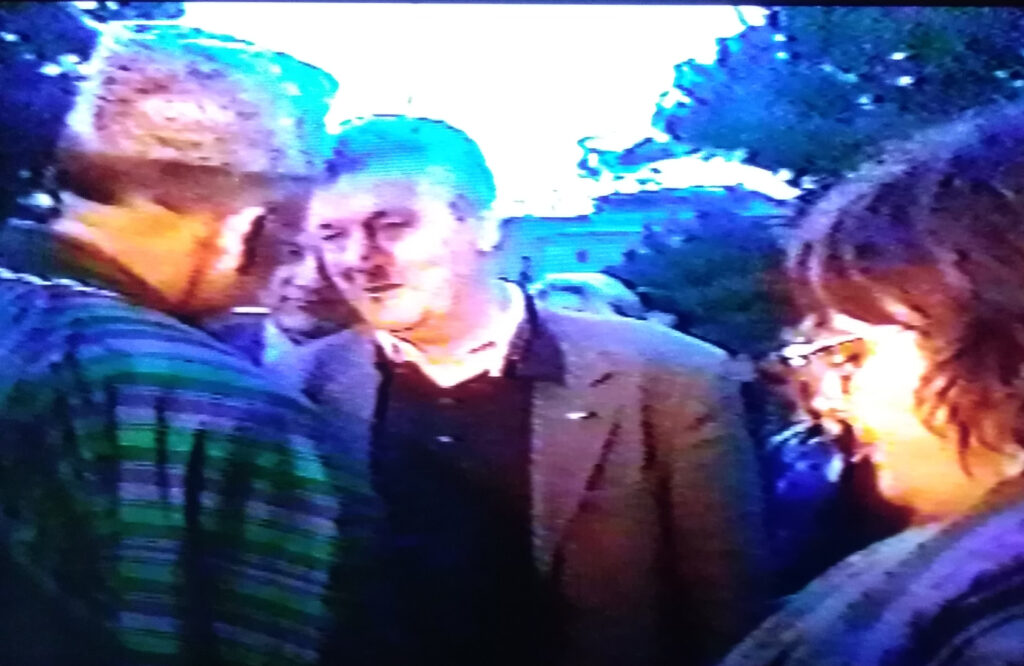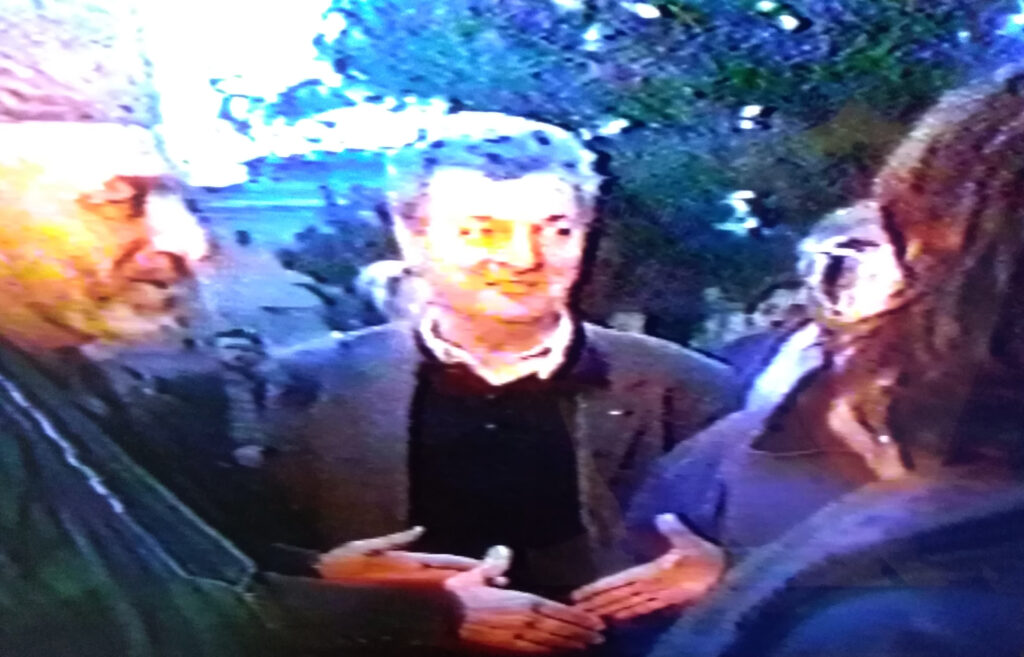I’ll tell you about Kabul before the Taliban

The testimony of Paola Sacchi
We met him in the field in Kabul by General Giorgio Battisti, now retired, commander of the first Italian military contingent who arrived in Afghanistan in December 2001. Mario Sechi, director of the AGI, gave a nice interview, reported yesterday by Start Magazine , to express his regret and pain and describe the mistakes made by the US also on the timing and period of the withdrawal of troops.
General Battisti also recalled that, unlike Biden, Trump had set precise and stringent conditions. That morning of February 14, 2002, Battisti welcomed the first Italian parliamentary delegation to visit our contingent in Kabul at a still wrecked airport, which was really excessive to define it as such. In Italy there was the second Berlusconi government, led by the two presidents of the Defense and Foreign Committees, of the Senate and the Chamber, respectively Luigi Ramponi, also a former general, and Gustavo Selva, a former journalist, who always remained passionately so, the famous "Belva" director of Radio Rai2, a right-wing journalist in recent years ridiculed and pilloried for that mistake on the use of the ambulance. Both were MPs from the National Alliance. With them I remember the deputy DS Marco Minniti, a great defense expert, Domenico Contestabile of Forza Italia, Federico Bricolo of the Northern League at the time. With them several others and other parliamentarians.
Kabul had just begun to rise again, on the street you already met a few smiling hopeful gazes, women who wore heeled sandals and enamel-lacquered toenails under their burqas. But the situation was still dramatic and at high risk. General Battisti also got on the minibus of journalists following the parliamentary mission. The women, including myself sent by Carlo Rossella, director of Panorama , then of the Mondadori Group, were immediately given a silk cloth by the military to cover their heads. Courteous but drastic and quick, because we were still in a situation of risk, albeit reasoned, Battisti gave us the necessary military instructions. The first: "If they shoot, first lower your head …". Etc, etc. Obviously not very reassuring things, but there was a climate of reasoned optimism, also of rational enthusiasm on the part of that general and in the whole composition of the mission that went to visit the base of the contingent. The meeting with the interim premier Hamid Karzai was not on the agenda.
But Selva, a personal friend of the first president of Afghanistan after the Taliban, would not rest if he could not meet the friend I believe known in America in his work as an international envoy. We were having dinner the night before at the Intercontinental hotel in Abu Dhabi, from where we had departed aboard an Air Force C 130. Selva said: "Tomorrow you will see that we will also go to Karzai". Minniti grimaced and smiled at the reporters. But when Selva managed to get in touch with Karzai by phone and heard "Hello, dear Hamid" he was a bit stunned and pleasantly joked: "Come on Gustavo, then tell me you wanted to come here to keep us on the tightrope. Compliments. But may God send us a really good one… ”.
There was a nice cordial and playful atmosphere, which was inevitable in such a situation, between representatives of government and opposition political forces. In the afternoon we went to the Presidential Palace. Crucial appointment, after the visit to the contingent, where there was also emotion and great thanks to our parliamentarians by the boys of the ISAF mission, there was a long briefing with the journalists of General Battisti who illustrated techniques but also the psychological spirit of empathy towards the Afghan people decisive to win that war, the commitment of its military to train the troops of the new Afghan army. But reporters in the Presidential Palace were not allowed. We found out in the end.
They could limit themselves to going to the private residence of the Italian ambassador. A small house with walls all pierced by bullets, where not even the bathroom was functional. Meanwhile, outside there were two buses waiting for us, one for parliamentarians and one for journalists who, however, still did not know they were not allowed to visit Karzai. I became suspicious, I asked a soldier I met on the plane if our bus was also going to the Palace. He said nothing. Only after my certain insistence did he make an explicit gesture with his head, shaking it in a negative sign. In fact, that bus had to go on a "trip" to the Kabul market.
It was a moment, I rocketed back to the ambassador's house to retrieve the jacket I had forgotten. And out of breath, between greetings with the ambassador and some confusion, I took the opportunity to jump on the parliamentary bus. I placed myself in the last places, my head and face covered by the silk cloth, which soon slipped away. Eventually they discovered me and the Chamber ceremonial wanted me to get out. But we were in the middle of Kabul and I had an easy game to say, arousing laughter, "Ah and you leave a poor woman alone here …". Then, however, it happened that the parliamentarians also began to argue among themselves about who could be admitted and who could not because in the meantime Karzai had made it known that the delegation had to be smaller. And nobody cared about me anymore.
I arrived alone, temporarily disavowed even by the spokesman of Selva for protocol reasons – "A Pa ', I don't know you" – at the entrance of the Palace. Out of foolish professional automatism, I carried a newspaper under my arm, taken in the morning from a hotel in Abu Dhabi, also in Arabic. Karzai's bodyguards caught me right away. Then I said that I was just a photographer, showing an old and battered Polaroid, the cell phones weren't what they are now. The security kids told me: go in, but only two photos and then go out. They searched me at the metal detector, kindly but at one point one lightly stretched his hand on his long back. There it ended, I obviously pretended nothing happened.
But the Northern League player Federico Bricolo, who had also irregularly brought with him another Max Ferrari journalist, then director of TelePadania , was also there being searched at the metal detector and told me "EU, Braveheart journalist!". I replied laughing to relieve the tension: "But shut up, this is bad here". We discovered a few months later that the Taliban were hiding among those bodyguard kids, after a failed attack in Karzai, for which the US sent them personal security. At a certain point, when they were about to throw me out after the two agreed photos, I gave those kids a pack of thin cigarettes, from which I noticed that they were intrigued. They got distracted and practically, in order not to miss it, I threw myself on Karzai. Few questions, but it was one of the very first talks with him in the Italian and international press . Also question about fashion, because Tom Ford had called him the most elegant man in the world, for his famous cape. Karzai, however, in homage to Italy, which he thanked very much, replied that instead we Italians were the most elegant in the world and also praised our culture.
I asked him about the construction of the new Afghan army and he, an ethnic Pashtun, answered me about the goal of unifying all the tribes on the territory. The question on the situation of women could not be missing: "I will try to do everything for them". The interim premier, who later became President, was very happy that day, for the proximity, even physically, of Italy and the West. He joked with our parliamentarians: “Sorry I'm late, but I was in Jalalabad and they wouldn't let me go anymore. When does the plane leave you? I'm counting down … but go, we can do it … ". General Battisti drove us back to the airport, happy that everything had gone well. Although we landed in Rome we learned that while we were boarding the Taliban had carried out a massacre at the airport. Now, a tremendous punch in the stomach to see the Taliban in those rooms, in front of those paintings, those velvets of the beautiful presidential palace.


This is a machine translation from Italian language of a post published on Start Magazine at the URL https://www.startmag.it/mondo/afghanistan-kabul-talebani/ on Mon, 16 Aug 2021 06:40:35 +0000.
